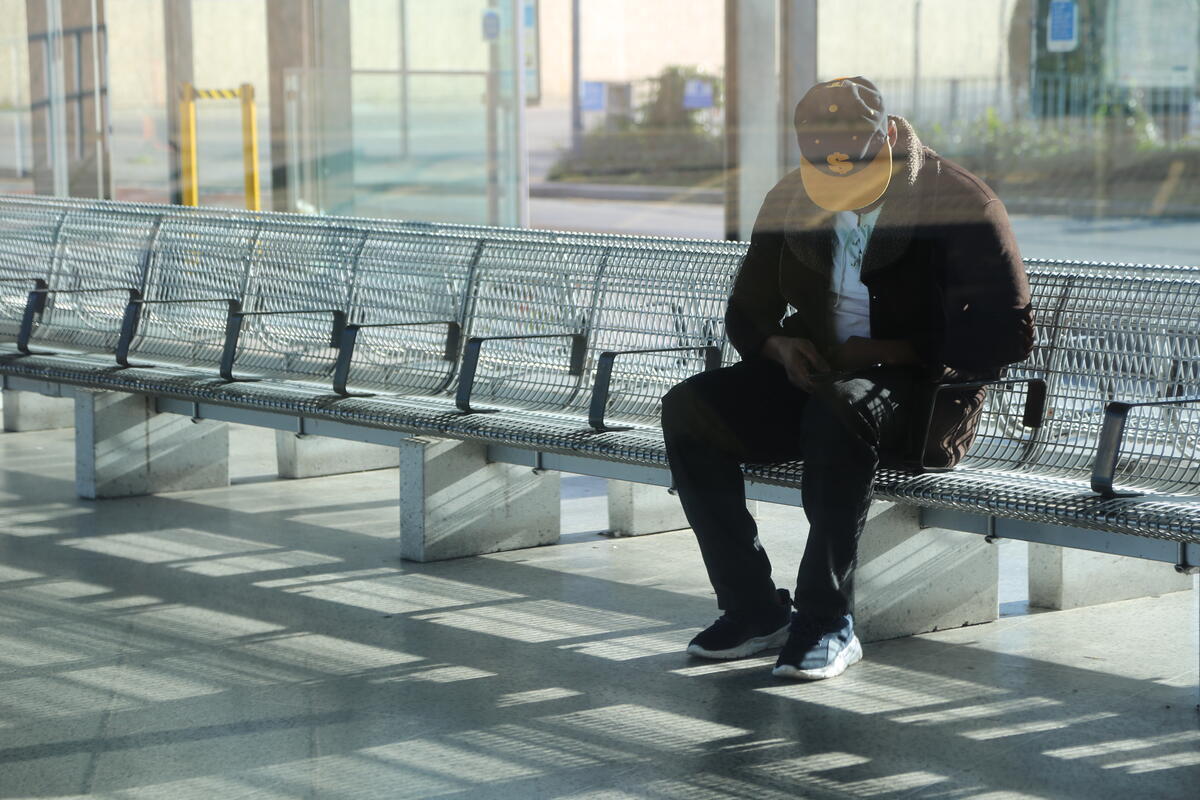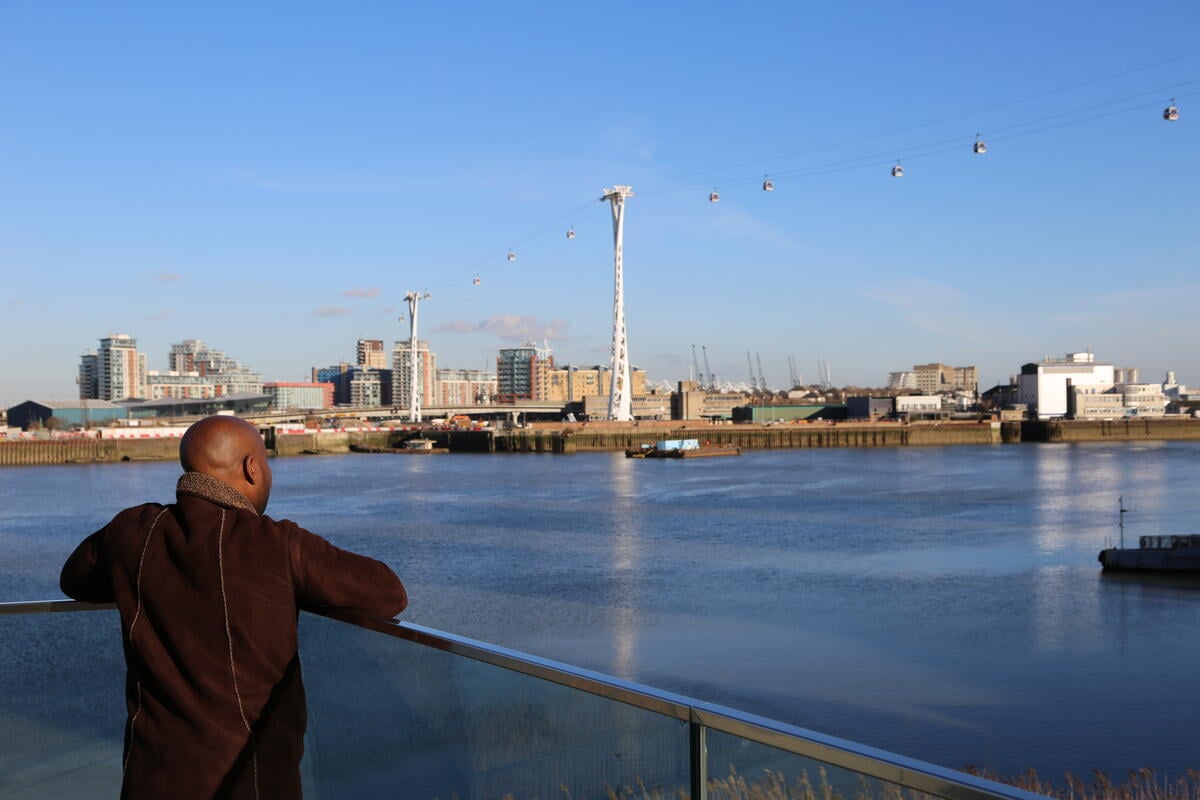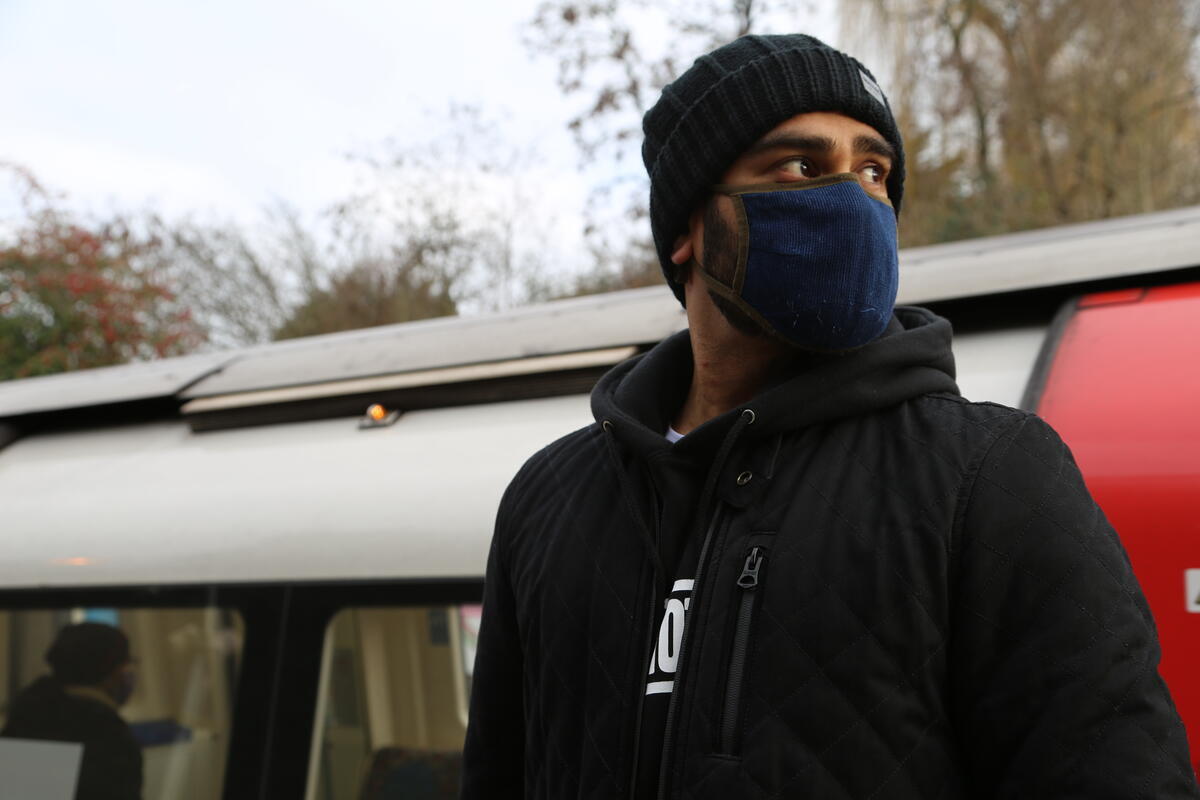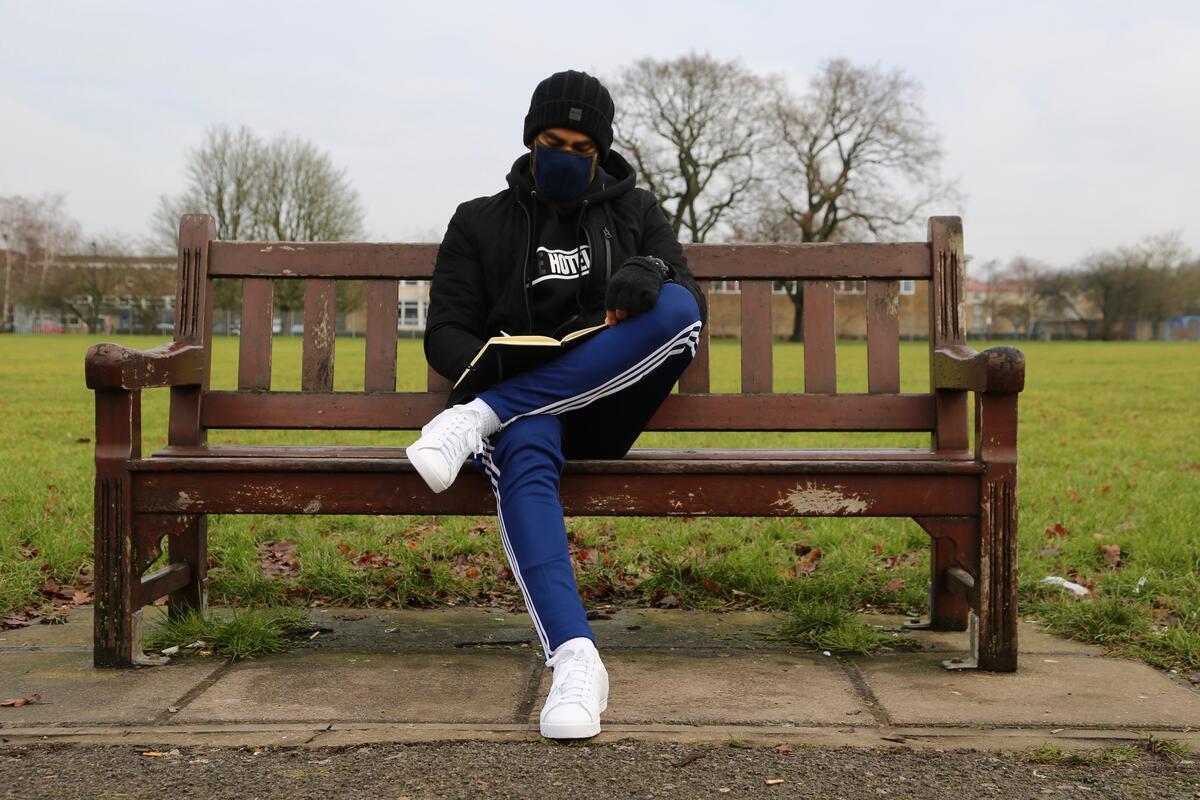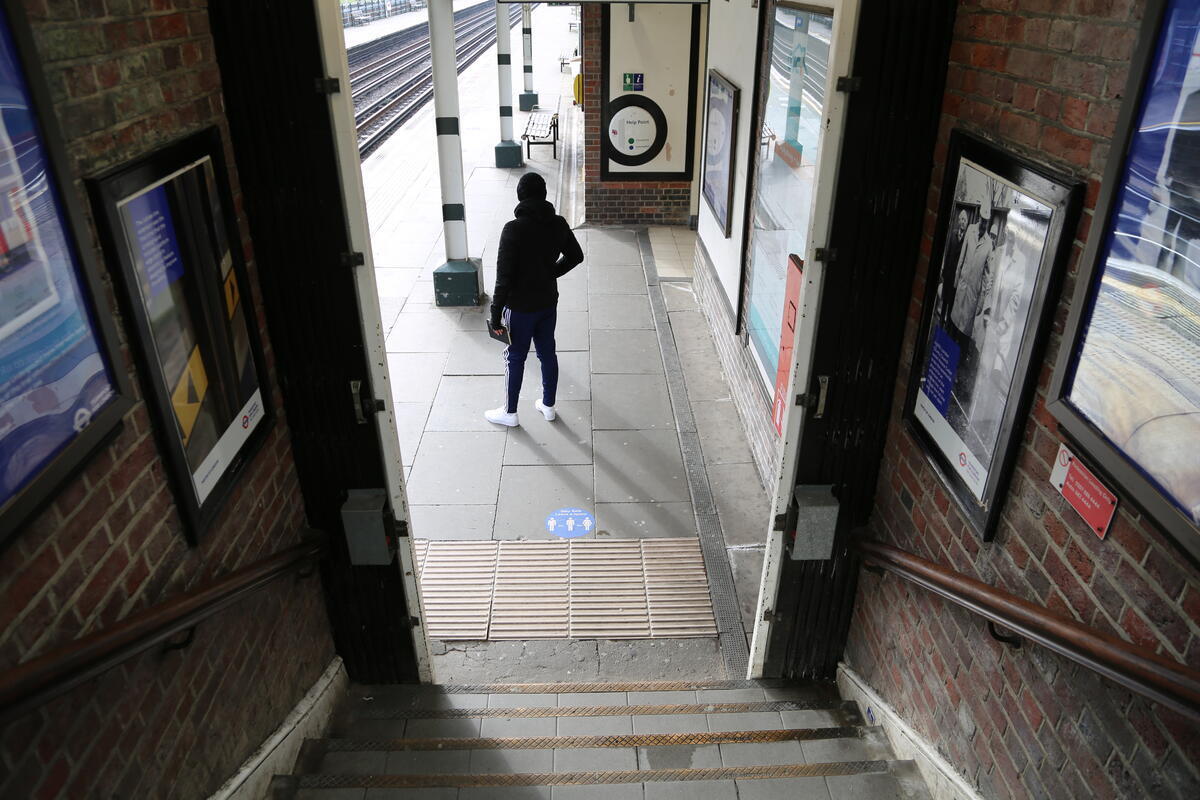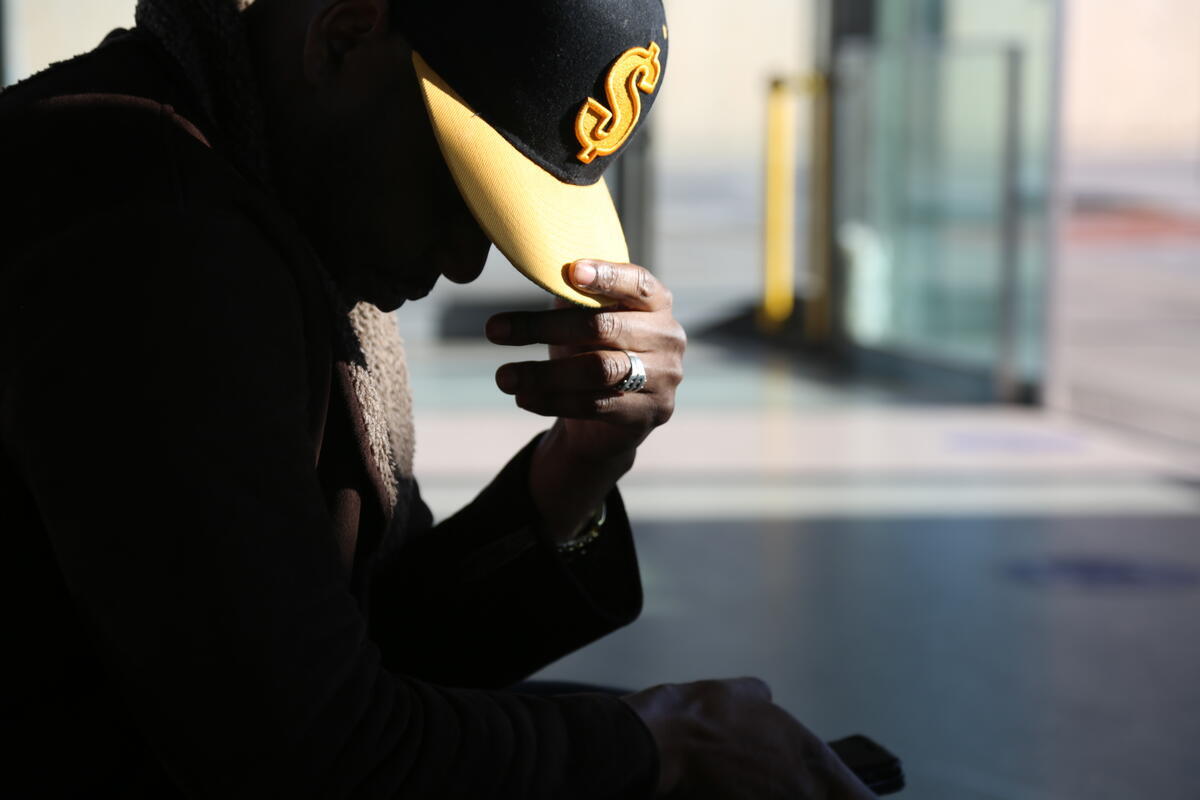For stateless people in the UK, the road to recognition can be tortuous
For stateless people in the UK, the road to recognition can be tortuous

Stateless people living in the UK told UNHCR of the limbo they find themselves in as they seek recognition of their status.
Paul and Benjamin are two men who, through bad luck or circumstances, found themselves in the UK without a nationality, and hence struggled for years to work, travel or adequately support themselves.
They are among those who told their stories to UNHCR, the UN Refugee Agency, as part of ‘I am Human,’ a study into the challenges of being stateless in the UK and their struggles to support applications allowing them to stay in the country legitimately through statelessness leave.
Paul: ‘Two steps forward, always three steps back’
Paul was born in Goa, India. He was an Indian citizen from birth to adulthood and held an Indian passport. His parents were both British Overseas Citizens (a class of nationality granted under limited circumstances to people connected with former British colonies), and his father subsequently acquired full British citizenship.
Paul was issued a British passport by the British High Commission in India in 2007. Believing he had acquired British citizenship, in line with Indian law, he then surrendered his Indian citizenship, including his passport and other identification. After receiving his British passport, Paul travelled to join his father, who was living in the UK by then. A few months later, the British High Commission informed Paul that his British passport had been issued in error, and he was not in fact entitled to British nationality. Subsequent applications to regain his Indian citizenship were rejected.
Paul found himself in the UK, but a citizen of nowhere.
"If everything was sorted I could make so much of myself right now."
Positively, he recently obtained five years leave to remain on the back of his second application for statelessness leave, which was submitted in early 2020. And hopefully he can start planning for a brighter future.
Speaking before that decision, he described the impact that the bureaucratic “maze” had on his life. “It’s two steps forward, always three steps back,” he said. “We can’t get drivers’ licences, can’t go back and see family.” He has not seen his younger siblings since 2008.
He has friends in the UK, but many do not fully understand his situation. He was ashamed to tell them he was not a British citizen, for fear of being victimised or rejected. He now helps out by volunteering, to try to re-centre his life. “For me, it’s an outlet to channel my energy and not be too negative, because I’m working toward something.”
“If everything was sorted I could make so much of myself right now,” he said. “If there’s anything I can do to help someone else going ahead I’ll be there because I know what it’s like to be in that position.”
His main plea to the UK authorities is to examine each case separately, face to face and on its merits. “You’re never going to understand the case until you’re in front of that person and can see how it affects them.”
Benjamin: ‘I really want the sense of belonging to a country’
Benjamin was born in Namibia. His mother, born in Poland, was liberated from a concentration camp in Europe following the Second World War and subsequently left Europe for Namibia, then part of South Africa, by way of Cape Town to join her father, who had emigrated there some years earlier. One of Benjamin’s uncles died in a concentration camp, another is thought to have ended up in Siberia.
When he was born, neither of Benjamin’s parents had citizenship or a right to permanent residency in Namibia, and he did not acquire Namibian citizenship at birth. Eventually, Benjamin’s parents naturalised as South African citizens, but Benjamin was an adult by then, and he did not obtain citizenship. He was unaware that he was not a citizen of either Namibia or South Africa until adulthood.
An opponent of apartheid, Benjamin was repeatedly incarcerated and fled South Africa, arriving in the UK in 1973. He was detained briefly, requested asylum, but released without any immigration status. For years, he was afraid to apply to regularise his status in the UK, fearing that he might be deported to South Africa. During those years, he was unaware that he was stateless, but he found, over time, that his lack of proof of citizenship made life difficult. For example, he had wanted to marry his long-term partner, a British citizen, but they were unable to because Benjamin lacked documents.
In 2013, Benjamin learned that the UK government had introduced a statelessness determination procedure, offering a route to apply to stay legitimately in the UK. He was one of the first applicants and waited anxiously for a decision. In 2014, he was granted statelessness leave - after the intervention of his MP - with a residence permit for 30 months. His leave was renewed in 2016, and in 2019, he received indefinite leave to remain as a stateless person. He was finally able to marry.
"I can’t imagine what it will be like to be a citizen, but I’d like to find out before I die."
Benjamin was delighted to finally be recognised as a stateless person. But his experiences have been stressful, expensive and frustrating. He had two applications and a judicial review rejected in his quest to become a British citizen. Now in his 70s and with health issues, he still hopes to resolve his lack of nationality.
“I can’t imagine what it will be like to be a citizen, but I’d like to find out before I die,” he said. “I really want the sense of belonging to a country, which I never experienced.”
His one suggestion to the UK Government: “Some people have had the same issue for 20 years. Why don’t they issue a work permit to let them work while they are waiting for documentation?”
In 2020, UNHCR released the first public audit of the Home Office’s approach to statelessness, drawing attention to good practice as well as some concerns.
Today millions of people around the world are denied a nationality. They often aren’t allowed to go to school, see a doctor, get a job, open a bank account, buy a house or even get married. UNHCR's #IBelong Campaign aims to end statelessness by 2024.


